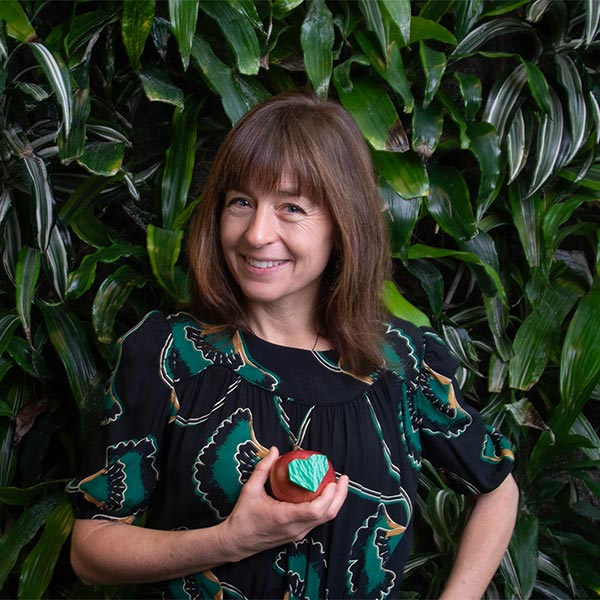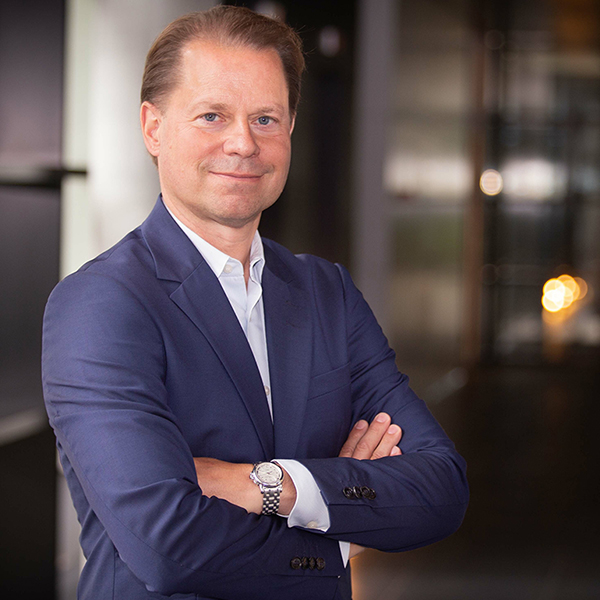Few Montreal swearing-in ceremonies in recent history have raised as much hope as Fady Dagher’s at the Marché Bonsecours on January 19, 2023.
In large part, that’s because Dagher, EMBA’12, who was being sworn in as the new chief of the Service de Police de la Ville de Montréal (SPVM), is, in many ways, a unique and unprecedented choice for the job.
He is the first person of colour to hold the position. Of Lebanese origin, he grew up in the Ivory Coast and speaks six languages — French, English, Arabic, Italian, Spanish and Dioula, the main language of his hometown, Abidjan. As a Maronite Christian, he has experienced more than his share of racial profiling. Like many “Arabs”, he hasn’t been able to board a flight since the 9/11 terror attacks without being questioned at length by customs officers.
But above all, Dagher is returning to the SPVM with the reputation of a reformer: he carried out a veritable revolution when he led the Service de police de l’Agglomération de Longueuil (SPAL) for six years, from 2017 to 2023. He took the concept of “community policing” one step further by creating a “partnership police force” that would work hand-in-hand with social services. It’s a crucial step in policing when so many 911 calls are related to things like homelessness, mental health crises or domestic disputes — situations for which police officers typically receive little training.
“I want to build a police force that will respond to people, rather than one that just answers calls,” Dagher explains. “Get a call, send a car, get a call, send a car — you have to break the pattern. We have to learn to be proactive and do prevention, and not just work in reaction mode all the time.”
Big binders full of valuable notes
At 55, the new police chief is ready to transform a police service that has been dubbed, the “chief’s graveyard” — neither of Dagher’s two predecessors finished their terms.
To illustrate his vision, Dagher jumps up frequently during our interview to grab one of the six large white binders sitting on a shelf near the conference table. The binders have his notes from the Executive Master of Business Administration (EMBA) courses he completed between 2010 and 2012, a program offered jointly by McGill and HEC Montréal. “I found my passion and my mission. I’ve never been so stimulated in my life.”
When he talks about his EMBA experience, the first name Dagher mentions is Henry Mintzberg, BEng’61, the John Cleghorn Professor of Management Studies at McGill’s Desautels Faculty of Management. One of the many ideas that he took away from Mintzberg’s course was the need to remove the hierarchical pyramid in organizations. “I flattened the hierarchy in Longueuil and I’m going to do the same in Montreal. We have to remove levels of rank in order to make internal communications more fluid.”
Whether it’s public relations, negotiations, crisis management or organizational innovation, lessons from the EMBA program come up daily in the police chief’s work.
“I’ve loved everything except for accounting and statistics, which I loathe. In fact, when the selection committee [of the City of Montreal] asked me how I was going to cut the budget, I told them right off the bat that I would probably cost them more money. They hired me to change the way we do policing, not to save money.”
Despite his antipathy towards accounting and statistics, when Dagher immigrated to Canada in 1985 at the age of 17, his goal was to study management and become an accountant. He planned to take over his father’s company, Dagher Cycle, which was selling its products throughout West Africa. But in 1991, a chance encounter changed the UQAM management student’s life forever.
A sudden change in career plans
Dagher was working as an assistant manager at an eyewear store to pay for his studies when he struck up a conversation with a police officer who talked to him about his work. Dagher, who had never considered a police career before, was riveted by what he heard. He made a radical shift in his studies, becoming the president of his graduating class at the École nationale de police du Québec and leading the 200 new police officers in their graduation parade.
His record of service with the SPVM, where he worked from 1992 to 2017, is impressive: he was a patrol officer, an undercover agent infiltrating mafia gangs, an investigator (narcotics, morality, anti-gang) and a member of the riot squad. After serving as the chief of police at a neighbourhood station, he moved to the SPVM headquarters and climbed the ranks to become deputy police chief in 2013.
Dagher had his epiphany about community policing between 2005 and 2010, when he was chief of the neighbourhood police station in Montreal’s Saint-Michel neighbourhood, a very ethnically diverse area marked by unemployment and gangs. He even made community policing the subject of his master’s thesis. While in Saint-Michel, he led the team that put together the first policy on racial profiling for a municipal police force in Canada. He also created the first psychosocial emergency support teams and the first crisis intervention response patrols.
In 2015, he was on the very short list to succeed the SPVM’s director of police at the time, Marc Parent. He didn’t get the job, but Longueuil offered him its top police position shortly thereafter and gave him a free hand to implement his ideas.
Dagher’s goal at the SPVM is not to simply duplicate the methods and programs he developed in Longueuil. “Community policing has been around for 30 years in Montreal and I want to build on what’s already working,” he explains, using diagrams from a course he took that was led by the late Brenda Zimmerman — a former McGill management professor who taught about complexity and innovation.
The police chief’s priorities
Dagher announced his three priorities at his swearing-in ceremony: recruitment, outreach and the fight against gun violence, in that order. “The most urgent problem is recruitment,” he explains. The SPVM police force has 4,720 sworn members, but is short 700 officers in the field. “We won’t be able to work on our other priorities if we systematically force people to work overtime, which is inhumane.”
Interviews with the 46 officers who resigned in 2022 revealed that their top two reasons for leaving were salary and a desire to work closer to home.
So, less than a month after his arrival, Dagher went to the École nationale de police du Québec to present his first new measures to future police officers. The city of Montreal will now offer them permanent positions from day one, which will translate into a starting salary of $52,000 instead of $36,900 with a probationary period. “They will be able to afford to live in Montreal.”
Dagher, who has long lived in the Saint-Laurent borough, a neighbourhood with a large Lebanese population, wants his police force to be more representative and Montreal-based. On the question of gender, change is already well underway. The SPVM has the second highest proportion of female officers in Canada (33 per cent of the workforce in 2020) after Longueuil. There is still room for progress, but Montreal is far ahead of the Canadian average of 22 per cent (only 19 per cent of Toronto’s police officers are women).
The picture is less rosy when it comes to visible minorities, who only make up eight per cent of the police force — compared to 15 per cent for municipal civil servants and 33 per cent for the population. The first challenge is that Montrealers from immigrant backgrounds often can’t see themselves working as police officers. Many come from countries where the police have a bad reputation. Dagher understands this from his own personal experience: when he joined the police, he kept it a secret from his own father.
There are also several recruitment biases at play, some of them not obvious. In addition to it being difficult to get foreign educational qualifications recognized, Dagher has identified, among other things, the quasi-Olympic-level swimming tests the police force requires its candidates to pass.
“I can’t believe it,” he says. “I do triathlon, and I’d barely pass the test! But the worst thing is that our procedures actually prohibit police officers from jumping into the water except as a last resort. So why the stringent tests? It ends ups discriminating against immigrants, many of whom come from cultures where they are taught to stay away from the water. I know, I grew up in Abidjan.”
Dagher also wants the police force’s general recruitment efforts to focus more on atypical candidates (anthropologists, social workers, community animators). In assessing candidates, the SPVM will place a greater emphasis on their interpersonal skills and emotional intelligence. “Currently, college-level police technology programs in Quebec recruit candidates based strictly on marks, without doing an interview. But what good is an 85 per cent math score if we end up with police officers who refuse to do night patrols, or resign from the job?”
To make all the changes that he has in mind, Montreal’s new police chief will have to win over several different constituencies that range from government officials to community groups to the members of his own police department. Chances are, he’ll be picking up those large white binders and reviewing the notes he took in his McGill/HEC courses many times in the years to come.


